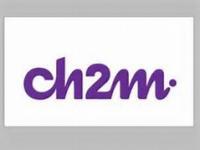
A settlement has been reached in a whistleblower class action lawsuit brought against CH2M Hill Hanford Group Inc (CHG) and its parent company, CH2M Hill Companies Ltd (CH2M Hill). They are accused of engaging in years of widespread time card fraud.
The settlement consists of CH2M Hill paying $16,550,000 to resolve its civil liability under the False Claims Act. In addition, CH2M Hill entered into a Non-Prosecution Agreement with the United States Attorney’s Office for the Eastern District of Washington to resolve its criminal liability. Under the terms of that agreement, CH2M Hill will refund an additional $1.95 million in wrongfully obtained profits, dedicate $500,000 to foster increased accountability at the Hanford Site, and pay for independent monitoring to ensure that CH2M Hill takes adequate corrective actions. To date, eight individuals have pleaded guilty to engaging in the same time card fraud scheme and conspiracy that CH2M Hill has now admitted CHG itself was a conspirator in.The whistleblower did not receive any financial recovery in this settlement due to the fact that they were convicted based on their role in the scheme.
The charges stem from an initial whistleblower lawsuit filed in June 2009. The United States alleged and CH2M Hill and CHG have agreed that CHG committed federal criminal violations, defrauding the public by engaging in years of widespread time card fraud.
Between 1999 and 2008, CH2M Hill had a Department of Energy contract to manage and clean 177 large underground storage tanks containing mixed radioactive and hazardous waste at the Department of Energy’s Hanford Nuclear Site in southeastern Washington (the Tank Farms Contract). The Hanford Site was used for the production of nuclear weapons during World War II and the Cold War. According to the statement of facts agreed to by the United States and CH2M Hill, CHG hourly employees involved in the cleanup routinely overstated the number of hours they worked, and CHG management condoned the practice and submitted inflated claims to the Department of Energy that included the fraudulently claimed hours.
Specifically, CH2M Hill and the United States agreed that CHG’s hourly workers “consistently refuse[d] to perform any overtime work unless that overtime was offered, or ‘called out,’ in 8 hour blocks.” As stated in the agreed statement of facts, “[t]he inability of CHG’s upper management to secure the necessary overtime volunteers for various jobs threatened CHG’s ability to complete various projects linked to the Tank Farms Contract performance incentives. This in turn threatened CHG’s ability to earn certain fees, and therefore profits under the Tank Farms Contract.” According to the agreed statement of facts, the inability to obtain performance based incentives would have directly impacted the personal corporate bonuses of certain members of CHG’s upper management. Consequently, “certain members of CHG’s upper management, certain direct supervisors of the hourly workers, and certain other supervisory personnel, accepted the practice of hourly workers only working until the particular overtime job was completed, leaving Hanford, and falsely claiming a full 8 hours even when the job took less than 8 hours,” according to the agreed statement of facts.
Unfortunately, the widespread time card fraud at CHG was not limited to overtime abuse and had occurred for many years, in some instances even pre-dating the Tank Farms Contact, as stated in the agreed statement of facts. Further the agreed statement of facts provides that, “[c]ertain members of CHG’s upper management, certain direct supervisors of hourly employees, and other certain supervisory personnel, did not discipline, formally or informally, CHG hourly workers for routinely engaging in known time card fraud. In fact, certain of CHG’s direct supervisors of hourly workers engaged in patterns designed to avoid the detection of the routine time card fraud by law enforcement and internal auditors.” In this manner, as CH2M Hill agrees, CHG “knowingly, willfully, and with intent to defraud, facilitated CHG’s hourly workers routinely getting paid for hours they did not work and combined, conspired, and agreed with CHG hourly workers to accomplish the same, all at the sole expense of the citizens of the United States.”


